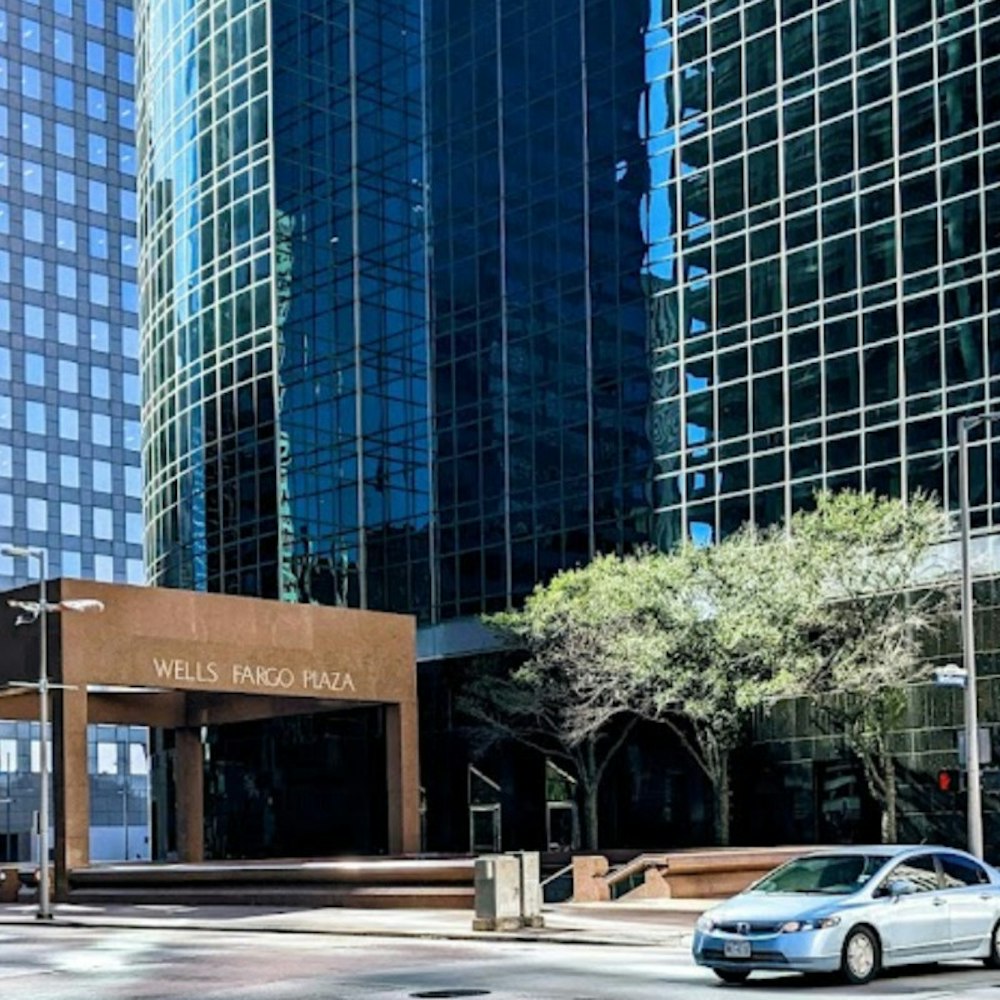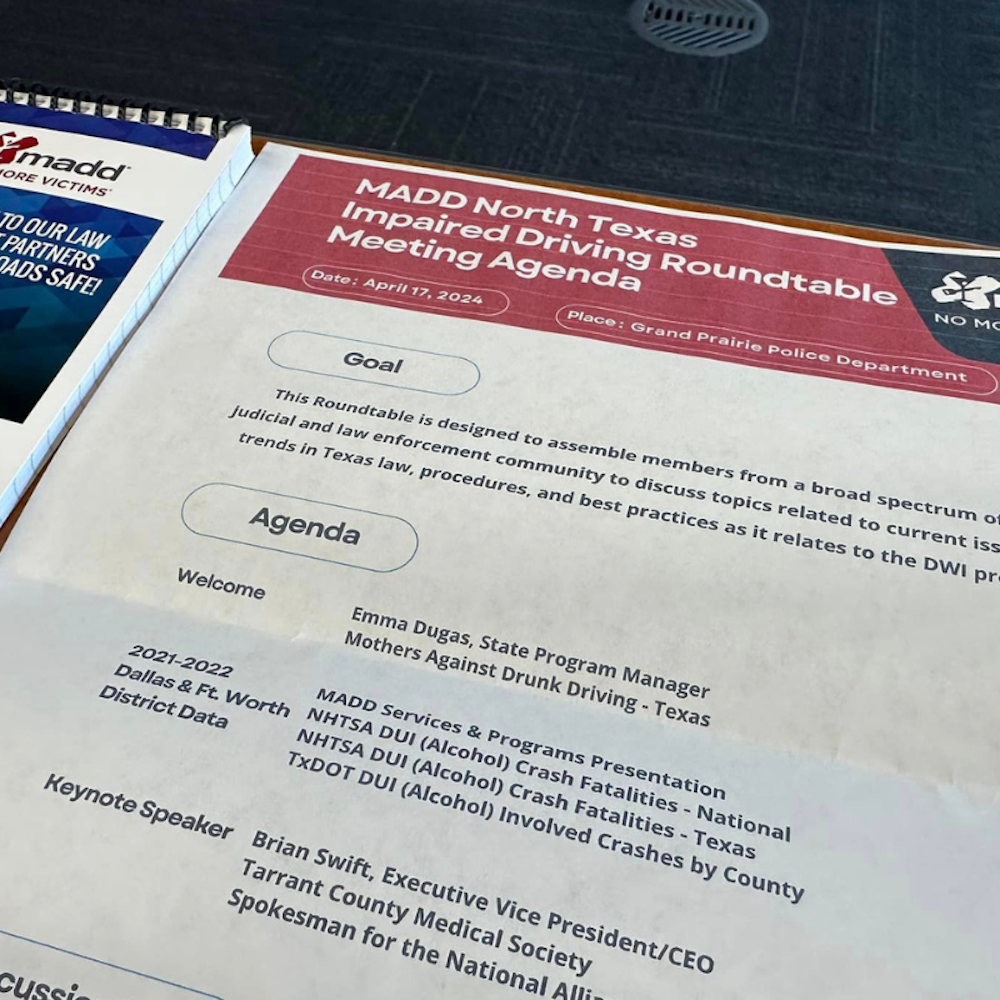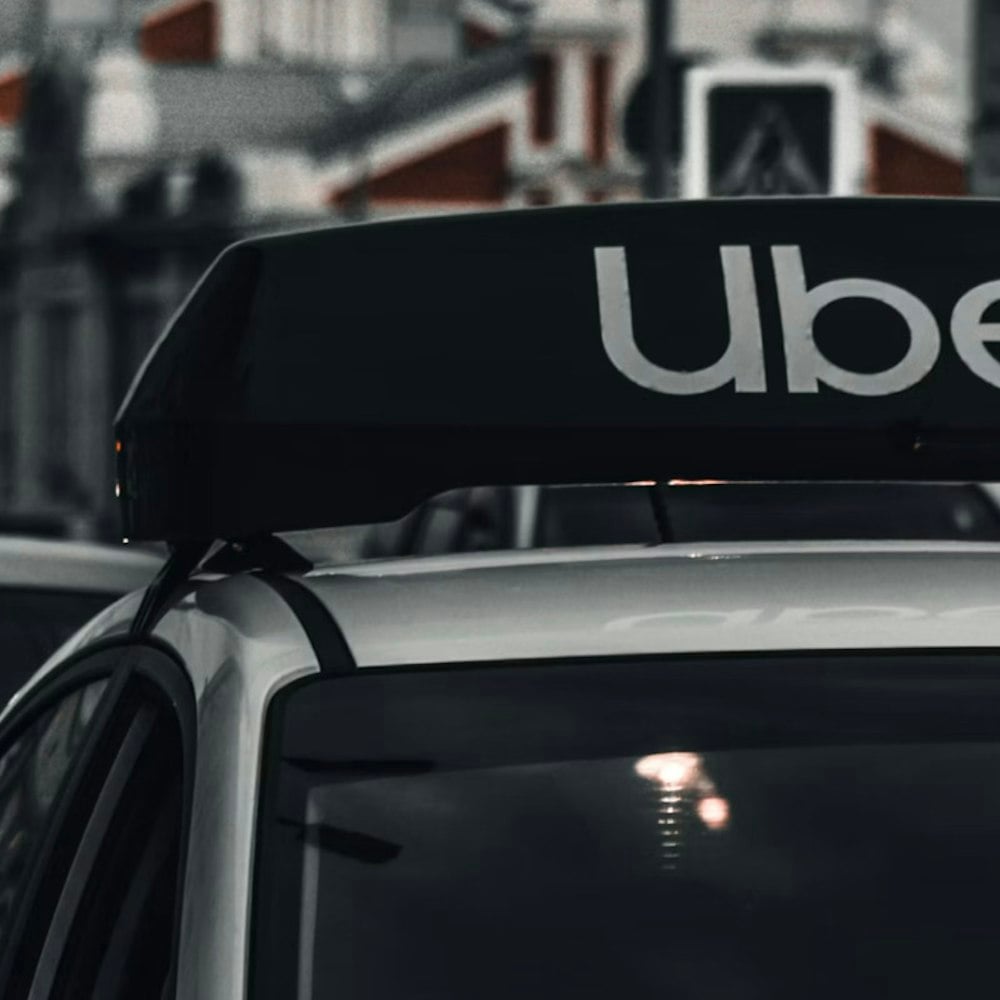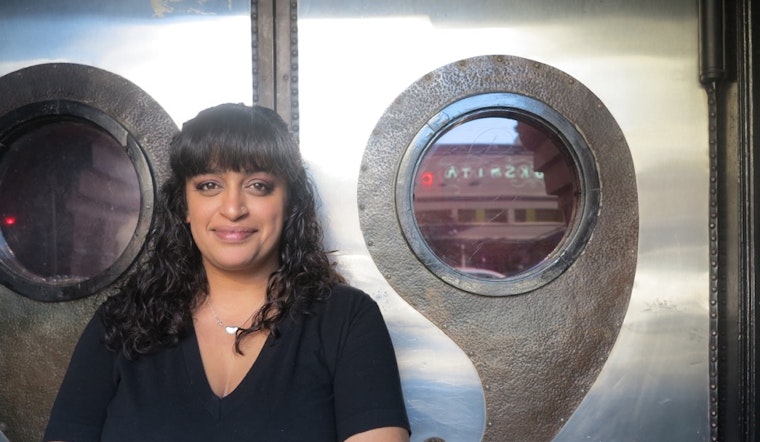
Founded in 1941, Haight Street's legendary Zam Zam practically drips character from its Arabian Nights-themed interior, which has survived the years relatively untouched (it's only changed hands outside of the original owner's family once). In a neighborhood that has itself seen more than its fair share of evolution, both good and bad, it's truly unique.
In our latest installment of Tapping In, we met up with Kundan Baidwan, who's been working at the Zam Zam for just four years—but is nonetheless an encyclopedia of knowledge about both the bar's history and the culture surrounding it.
Where are you from and how did you get here?
I grew up in Fremont, then went to school in San Diego. After that, I moved to New York, and thought I was going to be a big artist in the big city—didn't happen. So I moved back to California, and after New York, the only place that made sense was San Francisco.
And how long ago was that?
Eight years ago.
What's it like running a local bar in a neighborhood that's so flooded with tourists?
It makes for a really happy medium. At any given moment, I could name any of the people walking in the door, and I could have their drink waiting for them before they sat down. Or I could have this influx of people that have seen us on Anthony Bourdain's show, or were just walking through the Haight and had no idea what they were in for and just needed to get out of the madness. I get a lot of guys who are having a drink while wives are shopping.
They ask you about the area, you find out where they're from. I'm also a huge nerd and love telling people the history of the bar, as well as the mural.
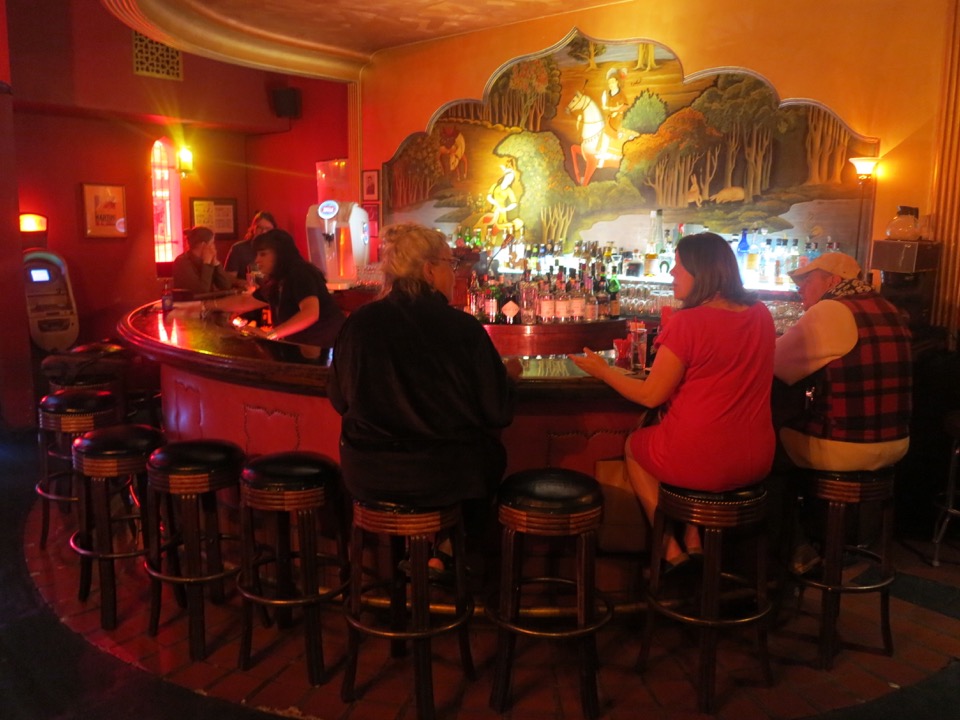
Tell us a little bit about the history of the bar.
The bar opened in 1941. The original owners were the Moosheis; they were an Assyrian family that moved from what's now Baghdad when their son, Bruno, was only a year old. They ran a little luncheonette counter down the street, and then they bought this place, which used to be an old coffee shop. They renovated it in '41 and opened it just a week after Pearl Harbor. It was a different era of bars back then. People would dress up and come out for an evening cocktail: before dinner, after dinner.
Did it have the same name?
I believe it was originally the 'Persian Aub Zam Zam.' Then they dropped the 'Persian,' and it went down to just 'Aub Zam Zam.' After Bob [Clarke] bought it, it dropped the 'Aub' as well, so now it's just 'Zam Zam.'
So when did it change hands from the original owner?
Sam Mooshei handed it over to his son, Bruno, who was the legendary 'Martini Nazi,' and he ran it for years before he passed away in 2000. Bruno's family actually owned the entire building, and Bob was a guy that lived upstairs and liked to have his evening drink here with Bruno. He and Bruno grew very close.
When Bruno's cancer took over, he was trying to figure out what to do with his bar, because his brother didn't want to take it over. A few locals threw their hats in the ring, and I guess they made a nice deal, because Bruno and Bob were so close and Bob promised to keep the bar as close to the original as possible. We got ATM machines and soda guns, but not much else has changed.
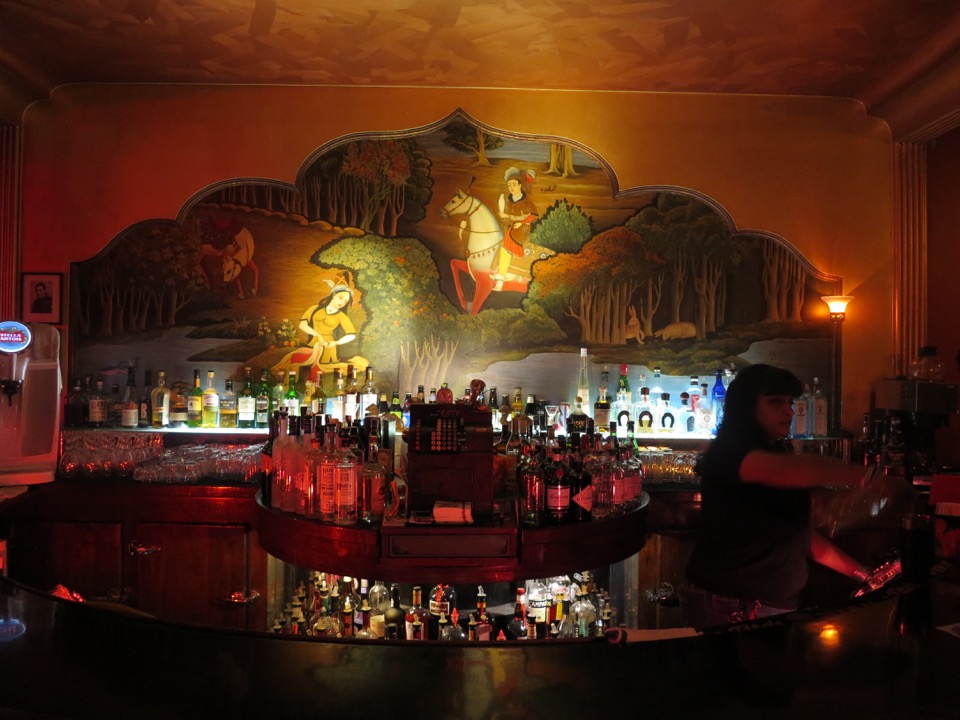
Tell us more about the Martini Nazi.
Like I said, Bruno came from an era where everybody got dressed up to come out and have a cocktail.
And when did he take over?
Bruno worked with his father through the late '40s and '50s. Sam passed in 1960, and that's when Bruno took charge. So pre-hippie, he was in charge of the bar. I think when the hippies moved in, he didn't think they were flower children—he thought they were barbarians.
He wanted people to look a certain way when they went out, and he thought that everyone should drink martinis because martinis were the 'Rolls Royce of cocktails.' He'd say that 'it should be your first course, before the soup.' Those were some of his famous quotes.
That's not to say that he wouldn't make exceptions—for all of the rules that Bruno had, there were exceptions—but he pretty much wanted you to come in and put your money on the bar, and he only allowed you to sit at the bar; you couldn't stand. Even if there was a couple here and there was only one seat at the bar, and the man gave the seat to the lady, the gentleman would have to wait outside until a seat became available.
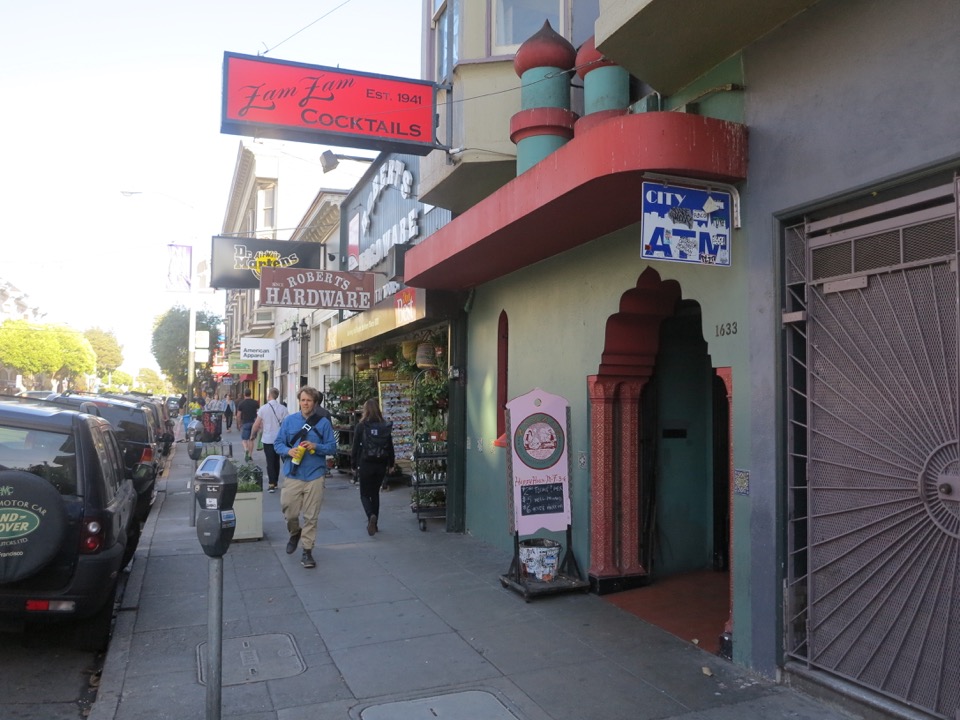
You work at a bar with such a rich cultural history. How do you feel you keep that tradition alive today?
Every time I tell a story, it gets people interested. It makes people realize that this isn't some place that's kitschy; there's an authenticity behind it, and I think that's why all of us, the staff here, as well as the locals, have such an affinity to it.
What do you like most about working in the Haight?
Never a dull moment! Like I said, you get a lot of different people that come in, including some people that haven't been here in years but remember the old days. Obviously, not much has changed. Considering it's such a touristy pocket, there's a huge sense of community here.
We all go out for dinner: me, a couple of the bartenders, and the regulars. We all know each other within the block. If my friend's son is grounded and I see him walking around, I pop my head out and ask him where he's headed.
In the bartender community, if something happens in one bar, and there's this weird dude in a purple shirt, we'll call and say 'Hey, look out for the purple shirt.' So even though it's a total tourist spot, there's a lot of people that stick by each other.
What do you find most irritating about working in this neighborhood?
The street kids. They're irreverent, rude, and they think they're living the hippie lifestyle, but it's kind of the polar opposite. There's no give and take, it's just harassment and take. So yeah, that gets troublesome. Depending on the wave of the crew, whatever drugs they're on at that time, it makes for a dicey situation sometimes.
Inside the bar?
Not usually inside the bar. For the most part, I'd say that even if I'm here by myself—which is usually the case—if anything does happen, there's always a couple of regulars in here who I know would stand up for me, have my back. It's just annoying when people are trying to come in and they're out there with their dogs lunging at them.
How would you describe the cultural climate of the Haight at the moment?
It's weird. We definitely feel the crunch. Not to speak ill of all the tech industry, but there's a little bit of younger money with entitlement that comes in. Sometimes, you have to explain to the young'uns that there's a protocol and a polite way to go about things.
We're not just a random dive bar where it's beers and shots and 'whoooo!' It's meant to be a small, quiet, intimate place where you can sit down and have a cocktail, and you converse kindly with your neighbor. If you want to get into a bit of a debate, that's fine, but it's hard to explain to some of the new people how things kind of run here.
It's a step back, a little bit, here—in a good way. Unfortunately, you have, in the midst of the relatively new neighborhood people, the people who have been here 10 years versus the people who have been here 30 years. That's definitely the crew that knows how to seamlessly integrate. And the influx of new money and wealth to the neighborhood is giving extra fodder to the street kids that are so annoying.
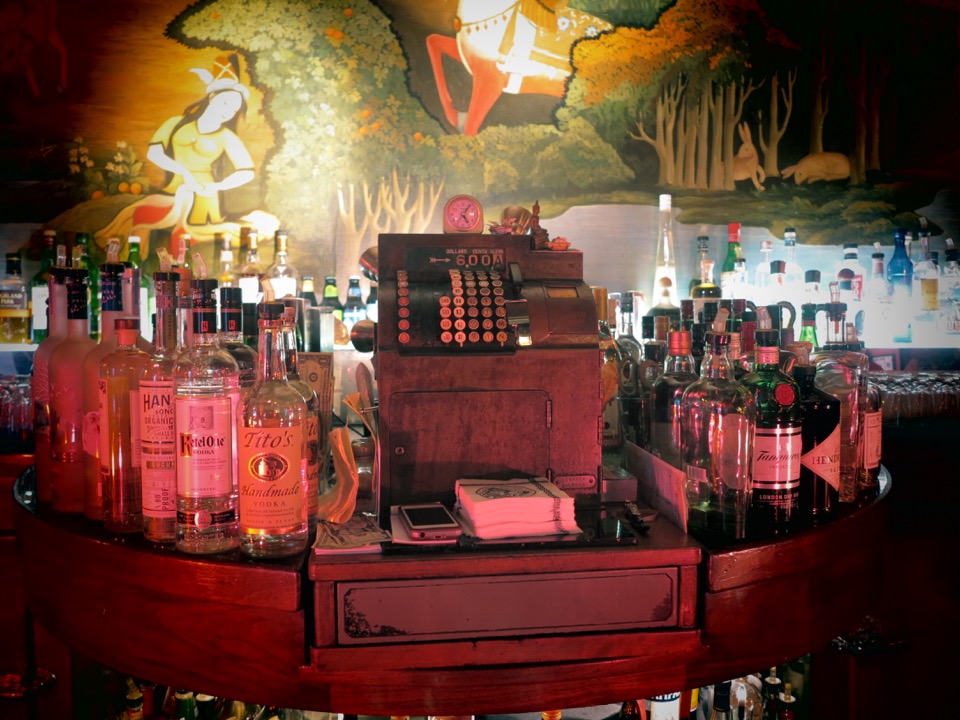
What do you do outside of the bar?
I'm an artist. I'm a painter. I actually have a show coming up, so it's crunch time. It's at Mini Bar on Divis. One of the girls that works here also works there. Like I said, there's community and camaraderie. Thursday, October 8th is the opening, and it'll be running until December 1st.
For more Tapping In with local bartenders, get to know Patrick Connolly of the Independent, Giday and Nebiat of Waziema, Michael Wieck of Bar 821, Caleb McGehee of Nopa, Chris Libby of Madrone, Jared Schmidt of Absinthe, Racquel of The Page, Remy Nelson of Mojo, Andy Mott of Royal Exchange, Martin Kraenkel of Molotov's, Brendan Heath of Whiskey Thieves, Pete Spanier of Hemlock Tavern, Meaghan Johnson of Fly Bar, Tim Gapchenko of Cafe Terminus and Johnny Davis of Emperor Norton's Boozeland.

